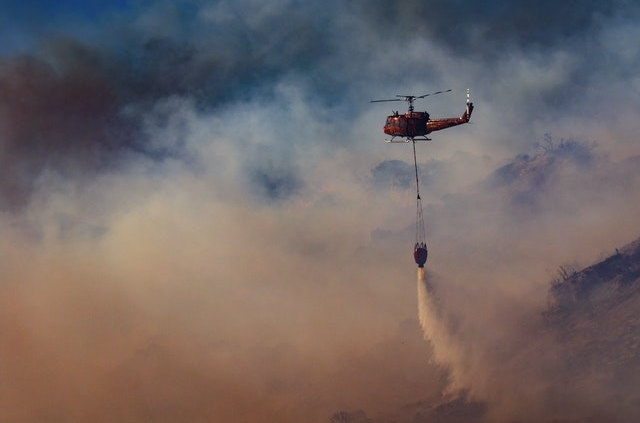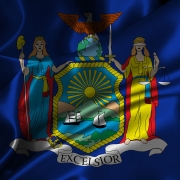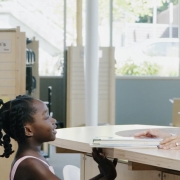By Kenneth Williams, Ph.D.
The COVID-19 pandemic continues to disrupt our lives. Many are away from their physical workplace and are teleworking. Schools ranging from preschool to higher education are delayed, implementing safety measures, and attempting to conduct face-to-face instruction, virtual instruction, or a hybrid. Administrators are having mixed success in controlling student behavior and enforcing safety measures and upon spikes in coronavirus cases are reversing course. The public is struggling with social distancing and safety recommendations, much of which is confusing as researchers discover more information about the illness. Is it 6 feet or 16 feet? Should I wear a mask or not? Is the coronavirus really as dangerous as some say? Businesses are laying off employees while others are closing. Most of the deceased had an underlying condition. Am I safe if I do not have an underlying condition? What about sports? What about going to restaurants and bars? When will we get back to normal? When will there be a vaccine? Some people claim to have all the answers. They are suspicious of the experts. They are right and everyone else is wrong. Who can I trust? This pandemic is chaotic, confusing, threatening, and does not make sense. It is disrupting our normal lives. If we are not careful, we will self-destruct by being overcome with fear, anxiety, and paralysis.
How do we respond? How do we make sense? How do we avoid making this crisis worse? How do we navigate these uncertain times?
A historical disaster provides insight. In 1949, a team of smokejumpers fought a fire in the Mann Gulch area of Montana. Of the 15 men who jumped in to fight the blaze, begun by a lightning strike and fanned by high temperatures and wind, only three survived. Among high grass and thick forest, the fast-moving fire quickly overcame the team. The team leader, “Wag” Dodge, started a fire which consumed the grass around him (the fuel the fire needed) and yelled for the other team members to drop their tools and run to him, to the spot where he had burned the grass. None of the team members listened to him, but instead, fled for their lives, trying to outrun the fire, but to no avail. Two men survived by sticking together, helping each other, and finding protection in a rocky crevice. (One of the two died later.) Dodge survived as a result of his escape fire.
Actions Leading to Lostness
The events of that disastrous day are recorded in Norman McLean’s Young Men and Fire and analyzed by Karl Weick in The Collapse of Sensemaking in Organizations: The Mann Gulch Disaster.[1] Weick identified five causes of team disintegration and individual self-destruction. First, the team disintegrated because they stuck to their familiar model of firefighting, in spite of the evidence they needed to adapt. The team had trained in effective and efficient firefighting techniques, in which they would jump in, extinguish the fire quickly, and get out. They had not trained in fighting such large-scale, persistent fires. When they were overwhelmed, instead of reframing the situation as surviving a fire, they stuck to their firefighting paradigm and eventually abandoned it as the result of an either/or reaction – fight or flight. Since they could no longer fight the fire, they fled. Similarly, we want a quick resolution by doing what we have always done. For example, when facing illness, we follow a familiar pattern – we go to the doctor, receive a diagnosis, obtain medication, follow the doctor’s orders, rest, and let it pass as our body fights the infection. Or, if our illness is serious, we receive extend a treatment and expect to recover in time and life will return to normal. However, we are not prepared for such a contagious and deadly threat as the coronavirus, which exploits physical vulnerabilities and many diverse population groups. Our normal pattern of responding to illness is not effective. Medical experts are advising us to take precautionary measures that completely disrupt our normal way of life. We resist those life altering precautions in pursuit of getting back to normal. We want our workplaces, places of worship, schools, sporting events, restaurants, bars, and families. The reality is if we continue the pursuit of normal, we will self-destruct. Instead of hanging onto the normal of the past, we must adapt and create a new normal that involves creative ways of experiencing the place and people we love. Specifically, this means letting go of traditional workplace, social, and educational activities, such as being physically at the office, dining in restaurants, attending sporting events and entertainment, and face-to-face instruction. While social interaction is essential for development, it is also unsafe and deadly at this time. Humans are very innovative and when we put our minds to it we can develop alternative means of engaging in social interaction.
Second, when their paradigm was no longer effective and they were threatened, each regressed into the fight or flight response and acted in self-preservation, resulting in their eventual death. Instead of abandoning their firefighting model, they could have adopted a fire survival paradigm. In the same way, when we discover our familiar pattern of dealing with illness is not effective and we are overwhelmed with the disruption of our lives, we tend to rebel, deny the threat, and keep doing what is familiar, to our own demise. It has been said, “Insanity is doing the same thing over and over again and expecting different results.” There are those who deny and dismiss the cautions of medical experts, looking for ways to discredit them. Others refuse to distance themselves socially and to wear a mask, putting others at risk in order to stick with what is normal, familiar, and comfortable. Instead of resisting the threatening environment, we must adopt a coronavirus survival paradigm as collective action, acknowledging that our actions impact the health and safety of the community around us.
Third, their lack of communication hindered collaboration that would have resulted in their survival. There was no dialogue or feedback loop that occurred among the team members. It appears that in general, our communication has devolved into blame, fear mongering, belittling, degrading, and discrediting. Unless we reverse this pattern and begin healthy communication and dialogue on that which is in the best interest and safety of our society and communities, we should not be surprised by further spread of the disease, increased death, and escalating blame, conflict, hate, and anger. Navigating this uncertain pandemic requires us to engage one another in respectful and compassionate dialogue. Now is the time for encouragement, emotional support and collaboration for the common good.
Four, they lost their identity as smokejumpers. The fire was too massive for them to control and extinguish. Instead of being courageous smokejumpers, they were reduced to fearful escapees. As this pandemic continues, our normal life of the past becomes more elusive, and we experience increasing death, many will be overcome by fear and lose the meaning of being human. Care, compassion, and respect will be replaced by self-interest, callousness, and bias. In reality, we may already be experiencing these as many have voiced that the current number of deaths are acceptable and the disproportionate effects on impoverished areas that lack sufficient healthcare are also acceptable.
Fifth, as a result of having lost their identities, they lost their sense of meaning and purpose, and therefore their hope of survival, that is, they lost their way. Life becomes chaotic and does not make sense. Familiar behavior patterns and our systems of membership (teams, society, and community) disintegrate, as we find ourselves in unfamiliar situations, abandon our responsibilities and shut down. As ambiguity grows, we discredit and doubt the authorities and experts who are responsible for our safety. Dysfunction and problems add up. Instead of panic, we need to re-evaluate our identity and our reason and purpose for living. Are these limited to our career or are they much broader and deeper and involve all aspects of our lives? Also, we need to identify an ambitious, desirable future that answers the questions: What kind of person do I want to become? What impact do I want to have? What legacy do I want to create?
The current pandemic closely resembles the Mann Gulch disaster. We face a fast moving virus that is consuming everything in its path and threatens to overwhelm us, our medical system, and our lives. If we continue to do things as we have always done, if we fail to adapt to a paradigm of survival, if we fail to maintain enter personal dialogue and feedback on the situation, if we lose our identity as human beings, but choose to view ourselves as victims of circumstance, if we ignore sound sensemaking guidance, if we become inconsiderate of others, then our teams and our support systems for survival will disintegrate and we will self-destruct. But if we take appropriate action, we will find a way through the chaos and uncertainty.
Five Actions for Adapting to Chaos and Uncertainty
Navigating these uncertain, uncharted waters requires five actions. First, let go of the past. What we knew as normal is gone. The longer we hold onto it, the more we are vulnerable to stress, anxiety, frustration, and fear and hinder our ability and our need to adapt to a new normal. Instead of being closed to change, be open to adaptation.[2] Observe the many people in your network expending so much energy to get back to a normal that cannot be achieved rather than focusing that energy on adapting to the disruptive environment.
Second, improvise by “figuring out how to use what you already know in order to go beyond what you currently think.”[3] Dodge applied his knowledge of the nature of fire to start the escape fire, which consumed the fuel the wildfire needed, and created a safe space for him and his team to survive. What is the physical, mental, emotional, and spiritual fuel the virus and pandemic needs to destroy us? In what ways can we exercise that fuel and find a safe place for survival? The virus needs people in order to spread and kill. Therefore, we must practice physical distancing and restrict our movements, and practice sterile hygiene. We must avoid the sources of fear, anxiety, stress, and worry. Watching the negative news for extended periods of time feeds the panic of the pandemic. We can apply the wisdom discovered in other stressful and threatening experiences to this crisis. Engage in activities that are meaningful and enhancing to our existence as human beings, exercising our emotional, mental, and spiritual muscles. Reflect on the ways your could use your past experiences, education, skills, and expertise in fresh ways. Consider the positive and encouraging activities we can add to our daily routine – send messages of encouragement, pray and meditate, begin a new hobby, complete that postponed project, start a virtual support group, and connect regularly online with family and friends. In other words redirect the energy we are expending by worrying about the pandemic to beneficial, meaningful activities.
Third, network. Maintain and nurture your personal and professional relationships. Although we are limited in social interaction, we can maintain the various elements of our social network and continue to contribute our role. The smoke jumper team could have increased their chances of survival if each member imagined the others’ roles, developed courses of action, and communicated with the others. What are the unfulfilled roles and responsibilities each of us could assume to ensure our collective survival? Are your community leaders and managers overwhelmed and unable to perform certain tasks that you could perform? What gaps can we plug and tasks can we perform to enhance our family, community, and organization? Perhaps, reach out to those in your contact list to check on them. Offer to help neighbors with tasks. Provide resources and information for others’ survival. Also, expand your network by reaching out to others in your profession or community to develop mutually supportive relationships, hear their challenges, and discover their lessons. Use your new connections to explore creative and innovative ways of adapting to the uncertainty and chaos.[4]
Fourth, be a learner. Take on an attitude of wisdom by becoming a learner, accepting uncertainty and reality, and not complaining about “the way things should be”. Certainly, this pandemic has disrupted our mindset of the way things should be. But, we can sabotage and constrain our survival by adhering to our mental bias on what the authorities or others should do. Instead of demonstrating skill or expressing how much one knows, our attitude should be of wisdom. Wise people are aware of their ignorance and are not overconfident. Weick quoted McLean, “…if the major purpose of your group is to ‘put out fires so fast they don’t have time to become big ones’, then you won’t learn much about fighting big fires.”[5] He went on to state wisdom is finding balance between “extreme confidence and extreme caution [as] both can destroy what we most need in changing times, namely, curiosity, openness, and complex sensing” (emphasis added).[6] In other words, our focus should not be on resisting the change that this pandemic is going to create in our society and our life, but in discovering ways to adapt to a new context. The pandemic is going to change our world significantly. We need to ask the question “What can I learn and how can I grow to adapt, survive, and thrive?” Based on what you heard from your expanding and exploring network, experiment with various adapting activities and observe the results, paying attention to what works for you. Then, share your results with others.
Fifth, engage respectfully. Survival will require interaction in ways of respectfully sharing our perspectives with each other and discussing the meanings of this pandemic. We must demonstrate respect and trust toward one another, sharing and hearing honest observations of our experience. Survival requires trust, honesty, and respect for self and others. As human beings, all of our experiences are valid. Empathy involves hearing and understanding others’ perspectives, and incorporating that understanding into the ways that we interact with each other. The sharing of perspectives results in collective sensemaking and the development of responses for survival. We can and must be resources to one another. Therefore, we should ask each other, “How is this pandemic affecting you? What does this pandemic mean to you? In what ways is this pandemic changing you and your situation? What are you learning and how are you growing through this pandemic? In what ways are your priorities changing? What is your source of meaning, purpose, and hope?
Panic occurs when there is no meaningful, comprehensive, unifying, permeating vision. When there is a weak vision, we feel threatened, vulnerable, abandoned, resulting in everyone for herself or himself. Our vision should not be that of preserving the economy or getting back to normal. The vision should involve surviving the virus and adapting to a new existence in the presence of the virus.
Weick concludes by stating that teams and organizations, and I would add society and communities, are characterized by collective interdependence. Resilience and survival involve all members collaborating and leaders who: (1) communicate the vision, task, guidelines, standards, expectations, and role responsibilities; (2) do not reinforce the status quo, the routine, and business as usual; (3) model and hold everyone accountable for safety, effective communication, feedback, and cooperation; (4) delegate leadership roles to the ones who have the most expertise in a specific area; and (5) demonstrate humility.
May we be those kind of citizens, leaders, team members, and friends.
Kenneth Williams is the founder of Oyster Leadership Coaching and Consulting, LLC.
(C) 2020 by Kenneth Williams
[1] Karl E. Weick, “The Collapse of Sensemaking in Organizations: The Mann Gulch Disaster,” Administrative Science Quarterly 38, no. 4 (December 1993): 628–52, https://doi.org/10.2307/2393339.
[2] Deborah Ancona, “The Secret Ingredient for Great Leadership: Sensemaking,” Latin Trade (English) 26, no. 3 (Quarter 2018): 33–33.
[3] Weick, “The Collapse of Sensemaking in Organizations.”
[4] Ancona, “The Secret Ingredient for Great Leadership.”
[5] Norman Mclean, Young Men and Fire (Chicago: University of Chicago Press, 1992).
[6] Weick, “The Collapse of Sensemaking in Organizations.”







Leave a Reply
Want to join the discussion?Feel free to contribute!